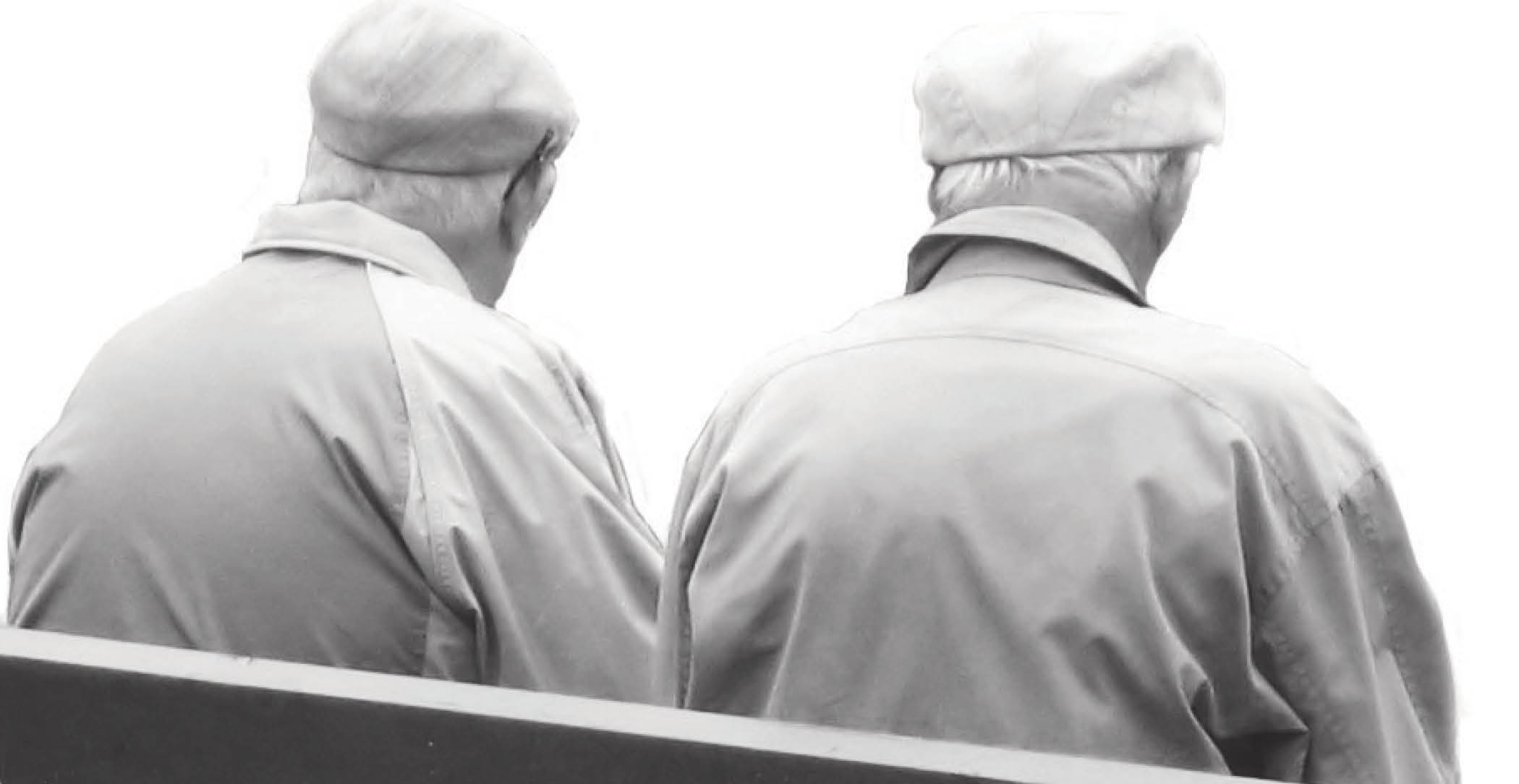“I often think about bringing octopus and fish home from the sea near our flat in Malta – I have some fantastic memories of the time John and I spent there. We had a wonderful 47 years together.”
Edward remembers fondly the travelling he used to do with his partner, who died last year of pancreatic cancer. “I went back to Malta after John died to scatter his ashes there. It was nice to see it again, but it wasn’t quite the same.”
At the age of 82 Edward is still adjusting to life without John, but he tries to stay upbeat. “My view is: I can’t sit around moping,” he says. “I have moments of sadness, but I don’t feel sad about my lot. I’m a reasonably steady person and I’m quite realistic.”
A new chapter
John hid the severity of his illness from Edward after he was diagnosed. “When he finally told me, all I could think was: ‘Don’t break down, Edward. He’s got enough to deal with.’
Edward set about providing the best care that he could. “John always liked a bowl of porridge. One morning I heard a crash and he had fallen down. I said to him: ‘Anything you want, I’ll do.’ I made a point not to tell him how tired I was. He was always worried about giving me a break, but I didn’t want a break. I enjoyed looking after him. And he’d have done the same for me.”
But eventually it became too much for one person to manage. John was referred to Bristol Community Health’s Palliative Care Home Support by his GP for extra support.
“They were all like Florence Nightingale. I don’t know what we would have done without them. Before they helped us, I was doing most of it myself. And all the things that were making life difficult were fixed,” Edward remembers.
Other Bristol Community Health teams were on hand to help, too. One morning Edward found John stuck between the bed and the sofa, and couldn’t move him.
Calling the hospital, a Rapid Response Team arrived quickly with an inflatable cushion to raise John back up onto the bed. “They were wonderful people, too,” says Edward.
“John was still thinking clearly at the end, but he was in shock about the whole thing. He never spoke to me about it as he should have done. “I think he was numb. His last words were: ‘Why is
this happening to me? How can it be happening?’
But he was always so funny, even near the end. He liked to call me ‘a sore with a bare head’ because I was going bald.”
Looking to the future
Still with a keen desire to travel – cigars are much cheaper in Amsterdam than they are here – Edward keeps himself active. He walks a lot around hilly Clifton and beyond to keep fit. Last week he helped an 80-year-old man carry his shopping home.
“Feeling old is all in the mind - you can easily let yourself go. And you have to take an interest. I’ve started watching Jeremy Kyle to know what kind of people there are in the world. It gives me hope,
really, that I’ve avoided such things. I’ve been very lucky in my life.”
Our Palliative Care Home Support Team
The Bristol Community Health Palliative Care Home Support Service works with other healthcare professionals to offer personal care and emotional support when patients are reaching the end of their life. The team is made up of nurses and healthcare assistants and is based in Avonmouth. All care is provided in patients’ homes.
After referral the team assesses the patient to work out how many visits are needed – whether they need one, two or three a day. The care provided includes: personal care, e.g. washing; providing emotional support for patients and their families; moving patients to stop pressure sores and keep them comfortable; and helping with breathing difficulties, pain management any other symptoms.
Find out more about Bristol Community Health’s Palliative Care Team. Referrals to the service can be made only by health or social care professionals for patients registered with a Bristol or South Gloucestershire GP.
